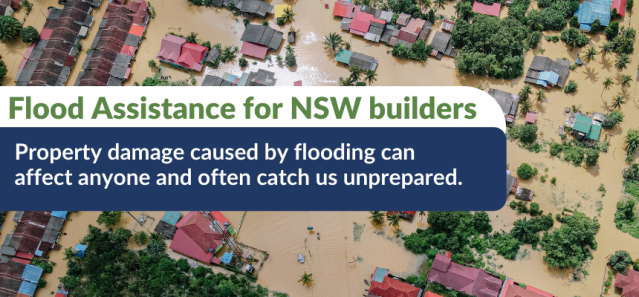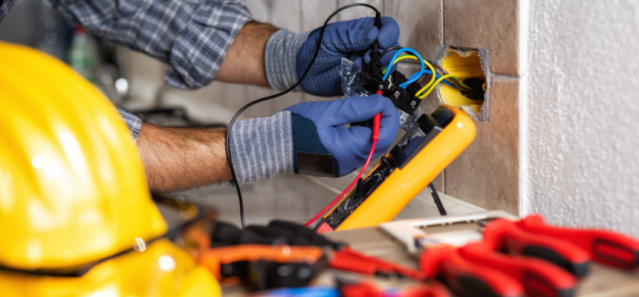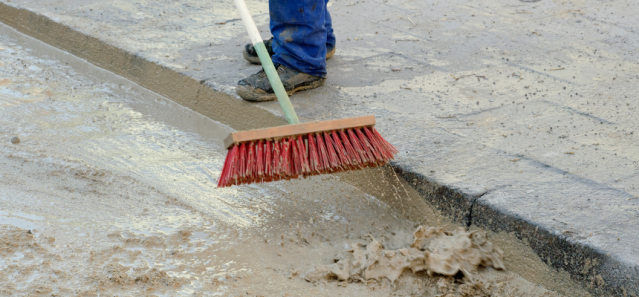Submitted by admin on

Australia is a country of extremes that can challenge us and impact our everyday lives in so many different ways. Two years ago, we were coming out of one of the worst bushfire seasons in many years, followed by floods and hail storms and then a global pandemic.
In recent times, parts of NSW and QLD experienced severe weather event which caused floods, losses, and damage across the State. Natural disasters like these storms and resulting floods disrupt lives and businesses, to mitigate the effects fair trading has outlined some informational support and financial assistance for NSW builders.
Electrical Safety After Storms & Flooding

Property damage caused by flooding can affect anyone and often catch us unprepared. The NSW Government has resources to help you during and after the floods.

If the property or connecting line has been damaged by a storm or flood, you may need to test it before reconnection to ensure everything is safe to use.
Make sure you get a licensed electrician to do this. They can ensure it is safe for your local electricity network operator or authorised Level 2 Accredited Service Provider to reconnect your service.

Stay away from solar panels and wiring after a storm, flood, or cyclone. Do not attempt to turn off the system.
If your solar photovoltaic (PV) system has been damaged, get a licensed electrician to inspect it, make any repairs and check if it's safe to be re-commissioned.
This check needs to be done before other clean-up work starts around the PV cells and associated electrical wiring.
Even if the network supply is turned off, PV systems will continue to produce voltages during the day. Always treat the system and associated wires as live.
If your system has been checked and is safe, follow the start-up procedure.
Learn more about solar panel safety.

Using water-damaged equipment can cause electric shocks and fires.
Make sure you dispose of or have an authorised service person repair and test water-affected electrical items, such as kettles, toasters, and televisions before you plug them in.
Get a licensed electrician to check all water-damaged hard-wired electrical appliances, such as air-conditioning units or stoves, before using them. This safety check may be required before the power supply can be reconnected.
Learn more about electrical safety.

Power from generators can be dangerous.
Make sure you:
- Connect your generator to your house electrical wiring using a generator change-over switch and appropriate socket. These switches must be installed by a licensed electrician.
- Ensure all leads used to connect your generator are in good working order.
- Use power boards with an overload cut-out switch.
- Run the generator outdoors or in a well-ventilated area.
Do not exceed the generator's load rating, and follow the manufacturer's instructions.
Do not connect your generator to your house using a powerpoint on a power circuit or any other connection point. This can cause dangerous back-feeding.
Note: Backfeeding can happen when a generator is connected to your home wiring system without disconnecting from the electricity network. This commonly occurs when a generator is connected directly to your electrical switchboard or a circuit in your home.
Backfeeding creates an electrical hazard to electricity network employees as well as damage to the generator when mains power is restored.
More information
For more information on electrical safety and storms in your area, contact your local electricity network operator:
- Ausgrid: 131 388
- Essential Energy: 132 080
- Endeavour Energy: 131 003

All flood-impacted households and businesses will receive clean-up assistance – including the removal of debris, mud, and green waste – regardless of insurance status.
Residents can take flood-affected household items to their local landfill without worrying about the cost, with the waste levy waived in local government areas subject to natural disaster declaration.
Read more local information relevant to your area about the flood clean-up.
Avoid Risks During Clean Up


- Do not enter a damaged building or structure, unless deemed safe to do so by authorities.
- Listen to your local radio station for further warnings and advice.
- Stay away from switchboards if they are damaged by water, fire or if lightning is close, and warn others to do the same.
- Even though you’re a builder, you are not licenced to do electrical work - it's illegal and dangerous. Always use a licensed electrician.
- Stay away from electrical signs, street lights, electrical cables, foil insulation, or other conductive material that may be lying around your house.
- If you are concerned about fallen power lines, do not approach the lines, instead report fallen, low, or damaged power lines to the emergency services or your local electricity network operator and stay away from them.
- If you have a solar power generating system, avoid getting on the roof unless it is absolutely necessary and keep away from solar panels and their cables.
- Be alert to snakes, spiders, rats, and other wildlife that may have taken refuge in the building, structure, or furniture.
- If removing or moving waste, remember basic hygiene. Use personal protective equipment, including a dust mask, gloves, covered shoes or boots, and full-length clothing to cover your arms and legs.
- If there’s asbestos – make sure you know how to clean it up safely. The Environment Protection Authority has further information on handling of waste materials and hazardous materials including asbestos.
- Wall and floor cavities should be checked for mud, debris, and floodwater. If items are not completely dry, mould or mildew may develop.
- Wash your hands thoroughly after participating in clean-up activities.
To find out more read the Australian Red Cross guide to cleaning up after a disaster.
Who’s Eligible For Financial Assistance For Their Business?

Financial support and other assistance are offered to businesses that have been affected by the severe weather and flooding in NSW.

The Northern Rivers business flood support package will provide grants to eligible small and medium businesses and not-for-profit organisations in the highly impacted local government areas of Ballina, Byron, Clarence Valley, Kyogle, Lismore, Richmond Valley, and Tweed.

Small businesses organisations that suffered direct damage as a result of the NSW storms and floods in February and March 2022, in a defined disaster area (AGRN 1012), may be eligible for a grant of up to $50,000 to help pay for the costs of clean-up and reinstatement of operations.
For eligibility criteria and to apply, visit Apply for the February and March 2022 storm and flood disaster recovery small business grant.
If you’re unsure about which financial support best suits your situation, visit our flood grants comparison page.

Small businesses and not-for-profit organisations that suffered direct damage as a result of the NSW storms and floods from October 2021 to January 2022, in a defined disaster area (AGRN 987, 1001, 996, 993, and 980), may be eligible for a grant of up to $50,000 to help pay for costs of clean-up and reinstatement of operations.
To view the eligibility criteria and apply, visit Apply for the storm and flood disaster recovery small business grant.

A range of assistance is available to businesses affected by severe weather and flooding in NSW from 22 February 2022 onwards. Visit the NSW Rural Assistance Authority or call 1800 678 593 for further details.

The Australian Government’s SME Recovery Loan Scheme helps eligible small and medium businesses recover and rebuild from the damage caused by the March 2021 floods, with access to more affordable loans from banks and lenders.
Visit SME recovery loan scheme.

- Stay safe when cleaning up after a flood by following guidelines outlined by the NSW Government.
- Stay away from switchboards if they are damaged by water, fire or if lightning is close, and warn others to do the same.
- Even though you’re a builder, you are not licenced to do electrical work - it's illegal and dangerous. Always use a licensed electrician.
- Do not enter a damaged building or structure, unless deemed safe to do so by authorities.
- The NSW government is offering businesses affected by severe weather financial assistance.
This is a summary of the Fair Trading ‘Foundations’ Newsletter.